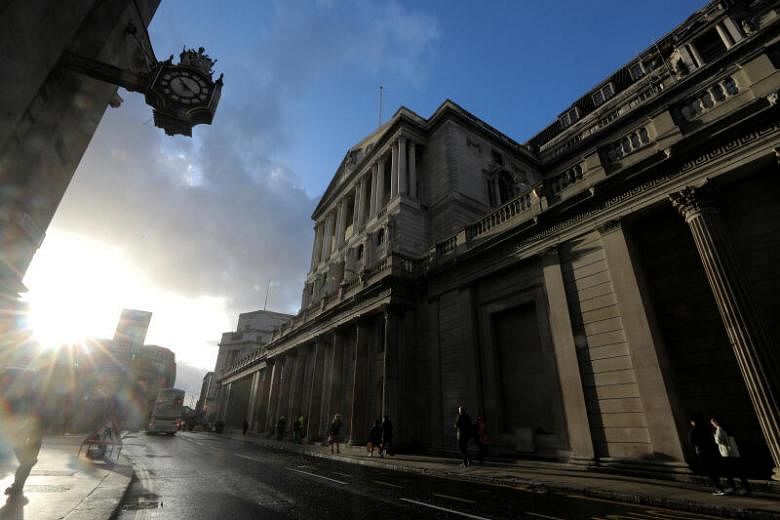LONDON (REUTERS) - The Bank of England unexpectedly cut interest rates by half a percentage point on Wednesday (March 11) in an emergency move to bolster Britain's economy against disruption caused by the coronavirus outbreak.
Last week the US Federal Reserve and Bank of Canada lowered rates, and the European Central Bank is expected to take action on Thursday. The move comes as the virus that began in China late last year has spread worldwide and is threatening major economies with recession.
Members of the BoE's Monetary Policy Committee voted to cut the bank rate for the first time since August 2016 to 0.25 per cent from 0.75 per cent, the central bank said in a statement.
"Although the magnitude of the economic shock from Covid-19 is highly uncertain, activity is likely to weaken materially in the United Kingdom over the coming months," the BoE said.
The cut was the first move to take place outside the BoE's normal schedule since the 2008 financial crisis, and takes bank rate back to the record low it reached after 2016's Brexit referendum.
The pound sank by more than half a cent against the US dollar after the surprise news, while London's FTSE 100 futures gained 0.9 per cent. The move also lifted sentiment in Europe, with Euro Stoxx 50 futures rising 0.7 per cent and German DAX futures gaining 0.4 per cent.
The rate cut comes ahead of the unveiling of the first budget of Prime Minister Boris Johnson's government. New Finance Minister Rishi Sunak is expected to pledge billions of pounds to fight the fallout from the coronavirus on Wednesday.
The BoE did not announce any new quantitative easing bond purchases, but did lower its counter-cyclical capital buffer for banks to zero from 1% and launch a new scheme to support lending to small businesses - both measures to keep borrowing flowing.
"Following the spread of Covid-19, risky asset and commodity prices have fallen sharply, and government bond yields reached all-time lows, consistent with a marked deterioration in risk appetite and in the outlooks for global and U.K. growth," the BOE said in a statement, adding that "indicators of financial market uncertainty have reached extreme levels".











